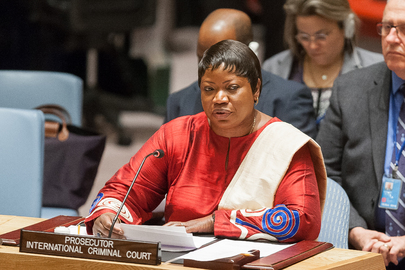Al-Bashir’s Case: ICC calls for external observations on Jordan appeal
March 29, 2018 (KHARTOUM) – The Appeals Chamber of the International Criminal Court (ICC) Thursday called for observations by international bodies and experts on the legal questions raised by Jordan over the case of Sudanese President Omer al-Bashir.

On 12 March 2018, Jordan appealed this decision.
Al-Bashir, who is wanted by the ICC on charges of genocide and war crimes, had attended an Arab League summit in Amman in March 2017.
The ICC Appeals Chamber is “inviting the United Nations, the African Union, the European Union, the League of Arab States and the Organization of American States to submit observations by 16 July 2018 on the legal questions raised by Hashemite Kingdom of Jordan in its appeal”.
In the same way, the Appeals Chamber invited States parties to the ICC Rome Statute and Professors of International Law to submit observations by first requesting leave to submit said observations by no later than 30 April 2018.
The Security Council has the power to sanction Jordan for a failure to cooperate with the ICC. However the 15-members body has so far not acted on court referrals.
To justify its call for observations, the ICC Appeals Chamber said it “noted that the legal matters raised by the appeal of the Hashemite Kingdom of Jordan against Pre-Trial Chamber II’s decision of 11 December 2017 in the Al Bashir case may have implications beyond that case”.
Jordan and several countries that refused to enforce al-Bashir’s arrest warrant say that heads of states have an immunity they have to respect otherwise his arrest would be a violation to the international law.
Observers agree that Al-Bashir’s case is posing a big challenge for the war crimes tribunal which is a relatively recent international institution that entered into force in July 2002.
The ICC issued two arrest warrants against al-Bashir in 2009 and 2010 for alleged war crimes, crimes against humanity and genocide committed in Darfur.
However, al-Bashir denied the allegations and accused the court of being political. He has continued to travel freely in Africa, Arab countries and Asia, defying the ICC arrest warrants.
(ST)
